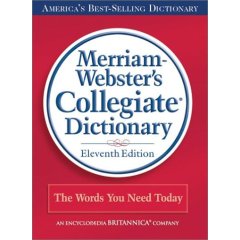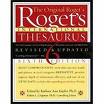| Announcements |
!
If you'd still like to give feedback on the class, my detailed
evaluation form can be viewed and downloaded here
(Word file). Thanks!
!
Competitions
-
Keats-Shelley
Prize (2007
announcement, noticeboard)
Inaugurated in 1998 to reward excellence in writing on Romantic themes.
Entries are invited annually in two categories: poems, on a theme chosen by the judges, and essays on any aspect of the work or life of Keats or Shelley. Although it is a competition open to all, it is promoted strongly to the universities and is launched at the beginning of each academic year.
-
The
M.L. Ananchanok Prize is awarded annually to original
unpublished creative writing in English by a Thai citizen. See details.
-
W.
B. Yeats Society of N.Y. Poetry Competition Open to members and nonmembers of any age, from any locality. Poems in English up to 60 lines, not previously published, on any subject may be submitted.
!
Discussion of assignments and midterm: (E-mail me your questions and I'll
post answers online.)
!
Intro Poetry group 2 celebrates
Halloween! (your poems; nothing fancy yet; any volunteers
to make this snazzy?)
|
| Course Outline |
Detailed
Schedule (Group 2)
Class
Time and Location: W 11-1 (BRK 312), F 8-9 (BRK 301)
Reading: Coursebook
(includes about 40 poems, reading questions, and key literary terms) and
handouts
Requirements and Expectations
-
Attendance and Participation:
Discussion of the poems and reading materials will be a big part
of this class and you are encouraged to express your opinions,
share observations and ask questions. This is an important way to
learn and increase your understanding about poetry. Use this
opportunity in class to expand your perspectives!
-
Student
presentations:
1.
Poetry World: Explore the world of poetry. How did it begin? Where is poetry? What can poetry do? Is poetry still relevant in the 21st century? Choose to discuss an issue in one of the topics on poetry listed
here.
2. Literary Tool Chest: Introduce your friends to the various art of verbal expression. Choose a literary term to explain to your classmates, with examples.
3. The Hit List: What do you find to be common problems among yourselves in reading and writing about poetry? Give friendly help to your classmates.
-
There will be
frequent reading and writing activities, four take-home assignments, a
midterm, a final paper (7-10 pages) and presentation, and a final exam.
Syllabus
(Word file)
Blackboard
Academic Suite for Group 2
|
| Studying
Literature |
|
| Poetry |
More
poetry links and references...
-
Hollander,
John. Rhyme's Reason: A Guide to English Verse.
Enl. ed. New Haven: Yale University Press, 1989.
-
Lennard,
John. The Poetry Handbook: A Guide to Reading Poetry for
Pleasure and Practical Criticism. Oxford: Oxford
University Press, 1996.
-
Strand,
Mark, and Eavan Boland, eds. The Making of a Poem: A
Norton Anthology of Poetic Forms. New York: W. W.
Norton, 2000.
-
The
Poetry Society of America
-
Poetry
International Web
-
The
Poetry Foundation
-
Like
Waiting for April (blog with tons of poems by a great variety
of authors)
-
The
Academy of American Poets (poets, poems, audio, essays,
interviews, reading recommendations, on writing)
-
The
Poetry Archive (poets, poems, historic recordings, guided
tours, resources)
-
The
Poetry Archive: For Students (poet in residence blog where
you can write in comments and questions, other poetry
websites, how to get the best of the archive, listening to
poetry, historic recordings)
-
Representative
Poetry On-line (wonderful resource site, includes poets,
poems, timeline, glossary, bibliography, and more)
-
Poetry
Out Loud (video [11:40 min.], sound clips, and photo gallery of the 2006
national finalists; the video captures wonderfully the atmosphere of
the competition with comments about what poetry means to the different
contestants)
-
Favorite
Poem Project (interesting video collection of Americans
reading and talking about their favorite poem and a bit about
themselves)
-
Erin's
Poetry Page (nice collection of poetry, informal and friendly
introduction to well-known poets and poems)
|
| Writing |
|
| Useful
Texts |

|
Abrams, M.
H. A Glossary of Literary Terms. 8th ed.
Boston: Thomson, 2005.
|

|
Gibaldi,
Joseph. MLA
Handbook for Writers of Research Papers.
6th ed. New York: Modern Language Association of America, 2003.
(library has 5th ed.)
|
|

|
Merriam-Webster's
Collegiate Dictionary. 11th ed. Springfield, MA:
Mirriam-Webster, 2003.
|

|
The New
Princeton Encyclopedia of Poetry and Poetics. Eds. Alex
Preminger, Terry V. F. Brogan, and Frank J. Warnke. Princeton,
NJ: Princeton UP, 1993.
|
|

|
Oxford
English Dictionary. 2nd ed. 20 vols. Oxford:
Oxford UP, 1989.
|
|

|
Roget's
International Thesaurus. 6th ed. Ed. Barbara Ann
Kipfer. New York: Harper, 2001. (library has 3rd ed.)
|





